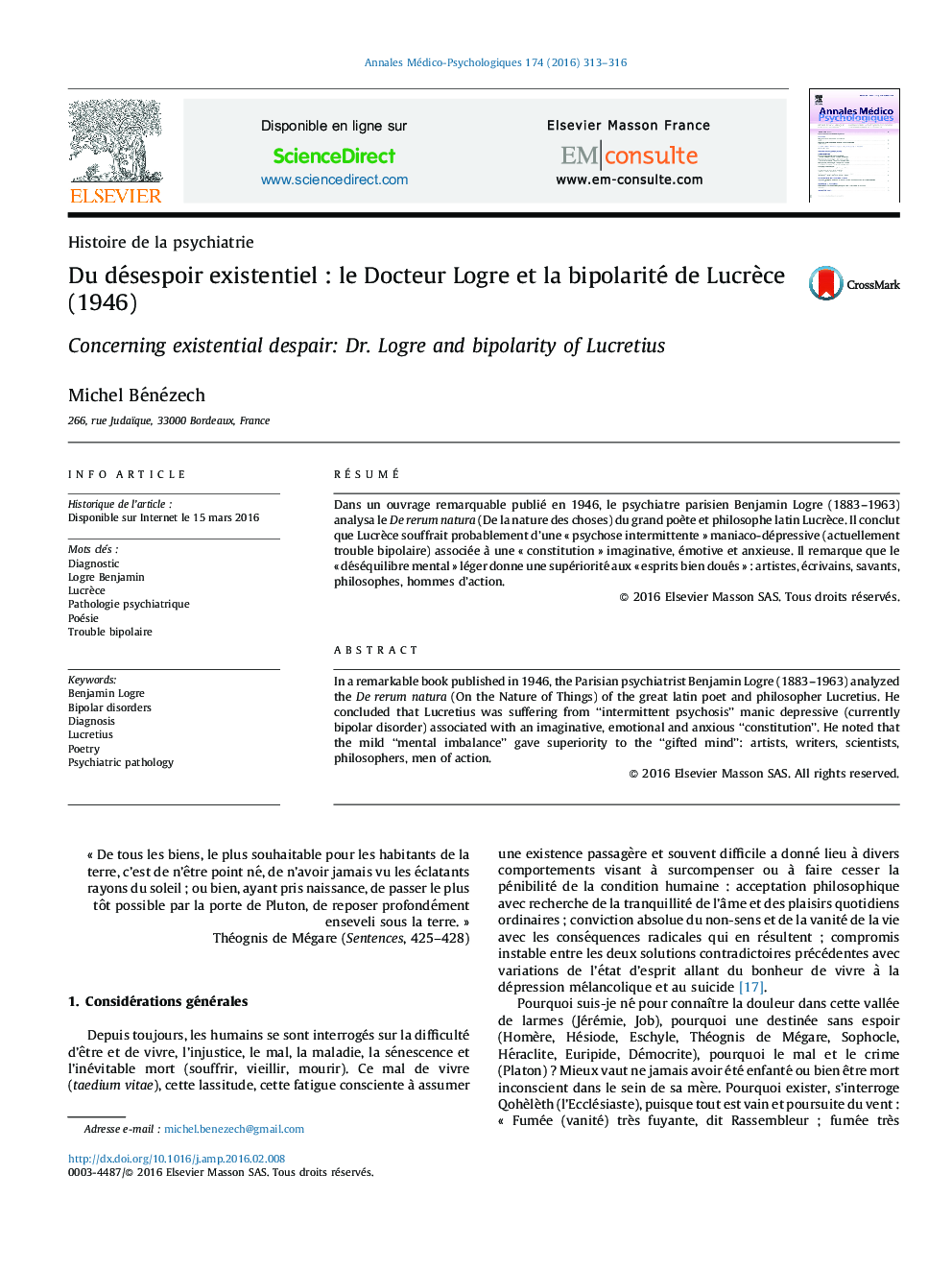| Article ID | Journal | Published Year | Pages | File Type |
|---|---|---|---|---|
| 312251 | Annales Mdico-psychologiques, revue psychiatrique | 2016 | 4 Pages |
RésuméDans un ouvrage remarquable publié en 1946, le psychiatre parisien Benjamin Logre (1883–1963) analysa le De rerum natura (De la nature des choses) du grand poète et philosophe latin Lucrèce. Il conclut que Lucrèce souffrait probablement d’une « psychose intermittente » maniaco-dépressive (actuellement trouble bipolaire) associée à une « constitution » imaginative, émotive et anxieuse. Il remarque que le « déséquilibre mental » léger donne une supériorité aux « esprits bien doués » : artistes, écrivains, savants, philosophes, hommes d’action.
In a remarkable book published in 1946, the Parisian psychiatrist Benjamin Logre (1883–1963) analyzed the De rerum natura (On the Nature of Things) of the great latin poet and philosopher Lucretius. He concluded that Lucretius was suffering from “intermittent psychosis” manic depressive (currently bipolar disorder) associated with an imaginative, emotional and anxious “constitution”. He noted that the mild “mental imbalance” gave superiority to the “gifted mind”: artists, writers, scientists, philosophers, men of action.
